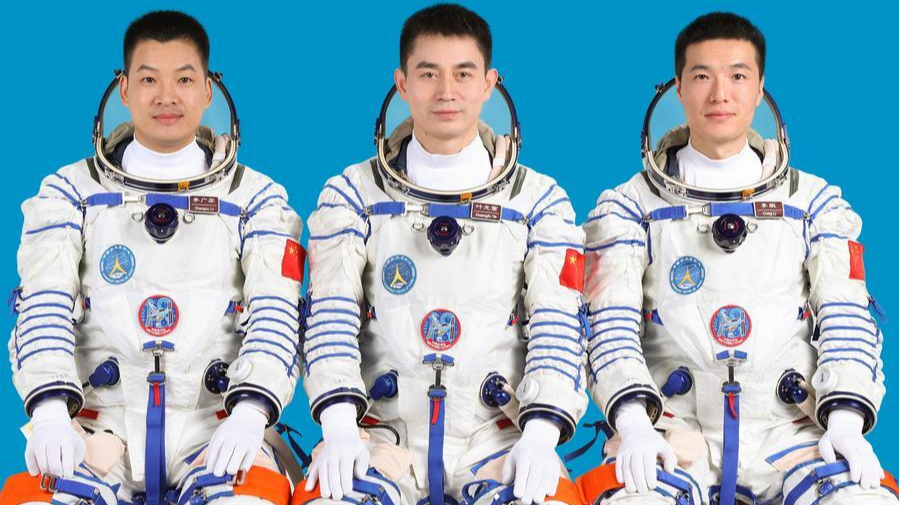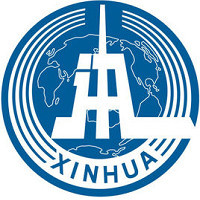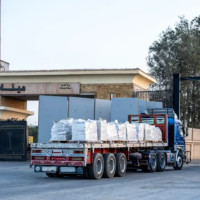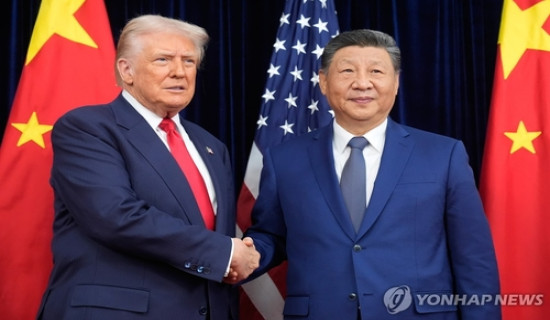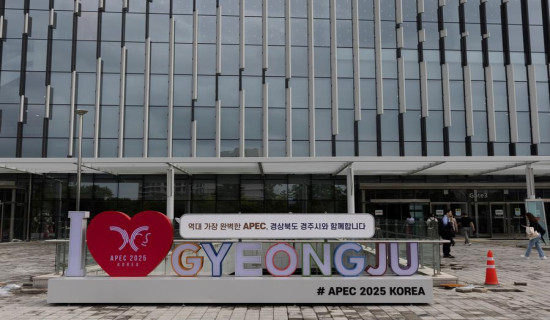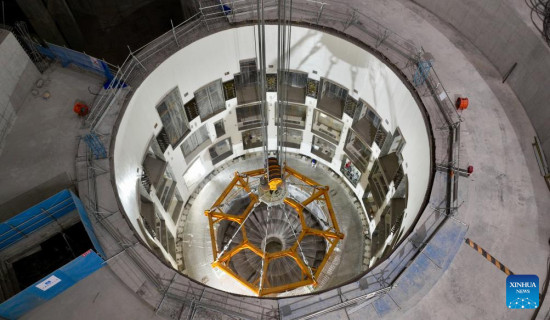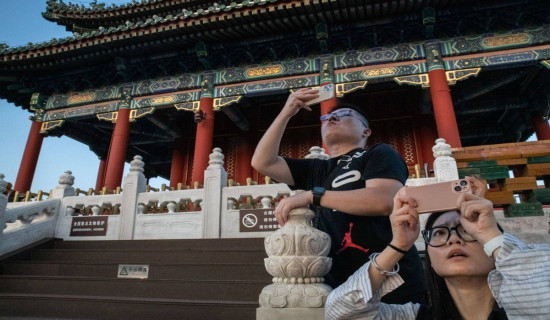- Tuesday, 3 February 2026
Chinese astronauts complete space tests regarding strength, muscle adaptability
BEIJING, June 18: The Shenzhou-18 crew members on board China's orbiting space station recently conducted a number of space science experiments and tests, according to the China Manned Space Agency (CMSA).
In video footage released by the CMSA, the three astronauts Ye Guangfu, Li Cong and Li Guangsu tested the strength of manual performance in the Tianhe core module, including two-arm and single-arm push and pull strength tests and the two-arm rotational strength test.
By collecting data from various manual strength categories in different stages of the space flight, these tests will compare and analyze the difference in astronauts' operation strength in space and on Earth in an effort to better understand strength changes in microgravity environments.
In the field of space medicine, the crew members carried out tests concerning muscle adaptability. Using equipment such as a bicycle, treadmill and resistance exercise device, they completed tests on Achilles tendon stiffness, lower limb kinematics, plantar pressure and others. These tests will help establish a prediction model for exercise protective efficacy for muscle atrophy in weightlessness.
During their stay in orbit, the trio will carry out over 90 experiments and tests in the fields of space material science, space life science and space technology.
China launched the Shenzhou-18 manned spaceship on April 25, sending three astronauts to its orbiting Tiangong space station for a six-month mission.

